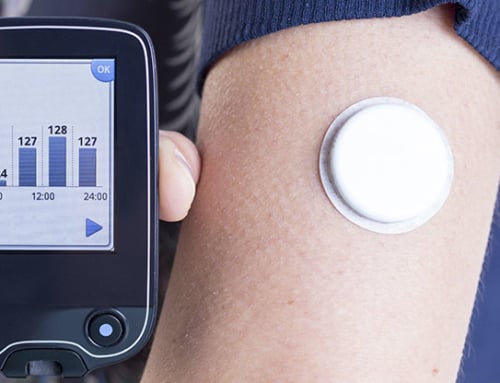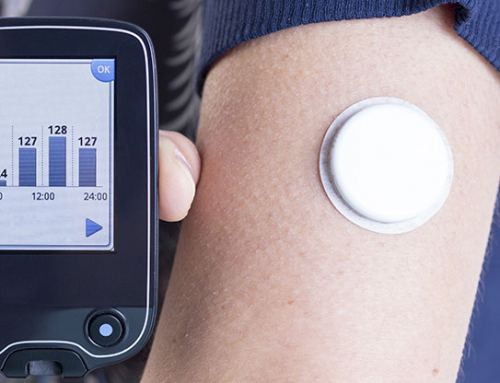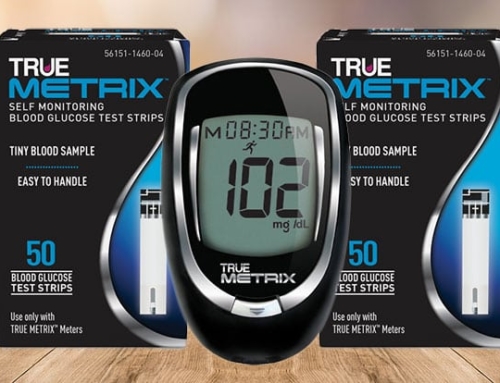Understanding the Diabetes and Heart Connection Could Save Your Life
According to the American Diabetes Association (ADA), adults with diabetes have heart disease death rates about 2 to 4 times higher than adults without diabetes. [1]
Understanding the connection between diabetes and cardiovascular disease is important, because you can lower the risk of having a heart attack or ischemic stroke by following a healthy lifestyle plan which includes Omega-3 fatty acids.
Here are the many ways that Omega-3’s can protect your heart:
Omega-3’s Can Decrease Risk of Cardiovascular Disease
Cardiovascular Disease is one of the major causes of death in the world. The American Heart Association states, “Omega-3 fatty acids with EPA (eicosapentaenoic acid) & DHA (docosahexaenoic acid) benefit the heart of healthy people, and those at high risk of — or who have — cardiovascular disease.” [2] Numerous studies have shown that Omega-3 consumption can significantly reduce this incidence.
Reducing Triglycerides
An analysis of 18 randomized, controlled studies examining the effect of Omega-3 fish oil supplementation on patients with type 2 diabetes, found that fish oil lowered triglyceride levels by 31 mg/dl, decreasing their risk for development of cardiovascular disease.[3]
Another analysis of 18 randomized controlled studies, showed patients supplementing with fish oil/Omega-3 had 25% lower triglyceride levels, 36% lower LDL-cholesterol levels, and 39.7% lower LDL-triacylglycerol levels.[4] A 16 year long study including approximately 5,000 women with type 2 diabetes, found that those with a high consumption of fish oil/Omega-3 had a significantly lower incidence of coronary heart disease and a significantly lower total mortality. [5] Therefore, people that are insulin resistant or have type 2 diabetes should include consumption of Omega-3’s as a part of their daily regimen as a means of cardioprotection. [6]
The reduction in triglyceride levels by Omega-3 fatty acids is also attributed to a decrease in the production of very-low-density lipoproteins (LDL), which are responsible for the transport of triglycerides, phospholipids, and cholesterol. [7] [8] One study found that daily supplementation with fish oil resulted in a 66% reduction in triglyceride levels and a 78% reduction in LDL levels. [9]
Ischemic Stroke Improvements
Approximately 795,000 Americans suffer from a new or recurrent stroke each year and more than 143,000 of those resulting in death. [10] It is well documented that increased fish consumption is correlated with a reduced risk in ischemic stroke and stroke mortality. [11] Both women and men that consume Omega-3 fatty acids significantly reduce their risk of ischemic stroke. [12] The protective effect of Omega-3 fatty acids are due, in part, to its ability to inhibit platelet aggregation [13] as well as a reduce whole blood viscosity. [14]
Atherosclerosis
The anti-inflammatory effects of Omega-3 fatty acids are thought to protect against atherosclerosis. Several studies have shown that daily supplementation with as little as 1 gram of EPA and DHA can significantly decrease the risk of developing atherosclerosis. [15] In addition to reducing the risk of developing atherosclerosis, Omega-3 fatty acids, particularly DHA, also slow the progression of the disease. [16]
Omega-3’s Can Reduce Hypertension (High Blood Pressure)
Daily supplementation with 2-3 grams or more of fish oil has been shown to decrease both systolic and diastolic blood pressure. [17] Analysis of 90 randomized studies concluded that supplementation with more than 2 grams of fish oil daily results in a reduction of systolic blood pressure by 2.1 mmHg and diastolic blood pressure by 1.6 mmHg. [18]
Just as Effective as Drug Therapies for Common Diabetic Eye Disorder (February 2011)
High blood sugar (glucose) increases the risk of diabetes eye problems. According to the National Institutes of Health, Diabetic retinopathy is the most common diabetic eye disease and a leading cause of blindness in American adults. [19] High blood sugar in diabetes causes the lens of the eye to swell, which changes your ability to see. According to Dr. Lois Smith, professor of ophthalmology at Harvard Medical School, more than 50 percent of people who have diabetes for 25 years will develop some degree of retinopathy.
Retinopathy
Retinopathy causes abnormal blood vessels to grow in the retina, the light-sensitive tissue lining the inner surface of the eye. This growth can cause the retina to detach from the back of the eye leading to vision loss or blindness. The results to a study conducted on the benefits of Omega-3 for diabetic retinopathy by Dr. Lois Smith, appeared in Feb 2011 issue of ABC News Investigative Unit [20] and were also published in Diabetes Pro (professional online resource for the American Diabetes Association). [21]
In her study, Dr Smith and her colleagues found that Omega-3 fatty acids prevented abnormal blood vessel growth in the retina, which occurs in retinopathy.
The researchers also found the benefits of Omega-3 are not affected by drugs such as aspirin or other painkillers.
“This is important for people with diabetes, who often take aspirin to prevent heart disease,” Dr. Smith said. “We found that it had as big an effect as the current drugs that are used in these diseases, so this is huge in terms of the increasing medical costs that are occurring in all countries,” Dr Smith said. Even more important is with the simple intervention just decreasing the disease burden and the horror of blindness in many patients is very exciting.
Foot Pain, Joint Pain and Frozen Shoulder
When you got out of bed this morning, did your hips and knees ache? Did your hands feel stiff when you poured your morning coffee? These could be signs of inflammation and the subsequent bone and joint pain that come along with it.
Unfortunately, diabetes and inflammation with bone and joint pain often go hand in hand. Charcot’s joint (primarily affects the feet), diabetic hand (carpel tunnel), osteoarthritis and frozen shoulder are the most common conditions that are associated with diabetes and joint pain. Most of these problems mentioned above involve some kind of chronic inflammation. When inflammation occurs, chemicals from the body’s white blood cells are released into the blood or affected tissues in an attempt to rid the body of foreign substances.
This release of chemicals increases the blood flow to the area and may result in redness and warmth. Some of the chemicals cause leakage of fluid into the tissues, resulting in swelling. The inflammatory process may stimulate nerves and cause pain. The increased number of cells and inflammatory substances within the joint cause irritation, wearing down of cartilage (cushions at the end of bones) and swelling of the joint lining. Factors such as nerve damage (diabetic neuropathy), circulation problems, arterial disease and excess weight may contribute to these problems.
Reduce Symptoms of Joint Pain and Muscle Stiffness
Harvard Medical School conducted 10 double-blind, randomized, placebo-controlled studies aimed at determining the effect of fish oil supplementation on 8 measures of arthritis severity including the number of tender joints, number of swollen joints, extent of morning stiffness, grip strength, erythrocyte sedimentation rates, and overall global assessment of disease severity. The studies involved a total of 368 participants who took fish oil supplements for at least three months. The results revealed a highly significant decrease in the number of tender joints and a significant shortening in the duration of morning stiffness among patients supplemented with fish oils. [22]
Anti-Inflammatory
Inflammation has been reported as being responsible for numerous diseases including diabetes, rheumatoid arthritis, atherosclerosis, asthma, inflammatory bowel disease, depression, and several others. [23][24] Omega-3 supplementation has been shown to reduce serum levels of tumor necrosis factor alpha (TNF-alpha) and interleukin 1 (IL-1), which are markers of inflammation. [25][26] DHA supplementation has also been shown to reduce inflammation as measured by decreased levels of C-reactive protein (CRP) and IL-6, which are markers of inflammation. [27] These studies support that Omega-3’s act as strong anti-inflammatory agents.
Diachieve Omega-3 exclusively from ADW Diabetes contains pure pharmaceutical-grade Omega-3 with the highest concentration of EPA and DHA available. Taking Diachieve Omega-3 every day, is a step in the right direction towards joint and bone health.
Weight Control
According to a study published in the British Journal of Nutrition, involving 124 adults, researchers found that the subjects with higher levels of Omega-3 had lower weight and smaller waists and hips than the subjects with lower levels of Omega-3. [28] In another study of young, obese males, the addition of fish oil to their caloric-restricted diet, resulted in 1 kg more weight loss after 4 weeks, compared to those on the same diet without fish oil. [29] It is believed Omega-3 fatty acids have anti-obesity effects by inhibiting lipid uptake into adipocytes, decreasing fatty acid synthesis, and increasing lipid oxidation. [30]
Finally, Omega-3 fatty acids EPA and DHA significantly reduced triglycerol and free fatty acid levels, which have tremendous benefits for people that are overweight and those with metabolic syndrome. [31] [32]
Neuropathy (Nerve Damage)
Diabetic Neuropathy can affect virtually every part of the body. Diabetic nerve damage eventually affects some 65 percent of people with diabetes.
One study published in Science Daily, December of 2009 states, “The key finding was that two Omega-3 fatty acids — docosahexaenoic acid (DHA) and eicosapentaenoic acid (EPA) — appear to be most useful in the nervous system, maybe by maintaining nerve-cell membranes.” [33]
Stress and Depression
Some sources of stress are never going to go away, no matter what you do. Having diabetes is one of those. Still, there are ways to reduce the stresses of living with diabetes. If you have stress, It can complicate diabetes by distracting you from proper care or affecting blood glucose levels directly. [34] Some studies suggest Omega-3 fatty acids may ease the mood changes and may be helpful in treating stress and depression. [35] According to the American Psychiatry Association, studies show deficits in Omega-3 fatty acids have been identified as a contributing factor to mood disorders such as stress and offer a potential rational treatment approach. [36]
Nephopathy (Kidney Disease)
According to the American Diabetes Association, Diabetes can damage the kidneys and cause them to fail. Failing kidneys lose their ability to filter out waste products, resulting in kidney disease. [37] A study published in Pub Med, examined the protective effects of Omega-3 essential fatty acids against these toxic effects on the kidneys. In conclusion, it was determined that induced kidney damage was prevented by administration of Omega-3 essential fatty acids. [38] Urology Today called Omega-3 an intriguing approach to delay progression of the renal disease. The article discusses a large prospective randomized placebo-controlled trial in patients with nephropathy. The study concluded that using Omega-3 fatty acids has shown that fish oils probably can reduce the deterioration of renal function and the number of patients in whom end-stage renal disease develops. [39]
The Diabetes / Alzheimer’s Connection
According to the American Diabetes Association, people with persistently high blood glucose tend to develop lesions on the brain later in life that are characteristic of Alzheimer’s disease. Diabetes increases the risk of getting Alzheimer’s disease and may speed dementia once it strikes. Doctors long suspected diabetes damaged blood vessels that supply the brain. It now seems that the damage may start before someone is diagnosed with full-blown diabetes, back when the body is gradually losing its ability to regulate blood sugar. According to the findings, brain functioning subtly slows as type 2 diabetics’ blood-sugar rises, well before people have any obvious memory problems. [40][41]
According to a study conducted in April of 2007 by the Departments of Medicine and Neurology, University of California Los Angeles, eating a diet rich in DHA Omega-3 fatty acid may slow or even prevent Alzheimer’s disease. Previous studies suggested that DHA may help in the treatment of Alzheimer’s; this was the first to reveal that DHA could actually help slow or prevent the development of the disease. [42]
In February 2010, The Journal of Nutrition published a review of DHA studies and found 9 studies associating increased fish consumption with reduced risk for dementia, including AD. The researchers concluded, “There is a real opportunity to use them for prevention.” [43]
The Diabetes / Parkinsons Connection
A new study published in the April issue of the Journal of Diabetes Care has revealed that diabetes patients could have an elevated chance of developing Parkinson’s disease. The research, involving the review of around 289,000 older adults in the US, showed that people suffering from type 2 diabetes at the start of the study were 41 percent more likely to be diagnosed with Parkinson’s disease over the next 15 years.
“That, however, does not prove that diabetes is a cause of Parkinson’s,” said senior researcher Dr. Honglei Chen, of the U.S. National Institute of Environmental Health Sciences. But Dr. Chen goes on to say that the two diseases could be connected because they share some similar underlying causes. [44]
In 2008, a Canadian study conducted by Université Laval in Quebec found that Omega-3 could help protect the brain against Parkinson’s disease. “Our results suggest that this DHA deficiency is a risk factor for developing Parkinson’s disease,” explains researcher Frederic Calon, PhD, in a news release. “In North America, the average intake of DHA is between 60 to 80 mg a day, while experts recommend a daily minimum of 250 mg.” states Dr. Calon. [45][46]
ADW Diabetes’s Diachieve pharmaceutical-grade Omega-3 is the purest form of Omega-3 available with the highest content of Omega-3 you will find. Each Diachieve Omega-3 soft gel supplies more than 850 mg of Omega-3 per day with 325 mg of DHA. We recommend you take 3 soft gels per day for optimum health.
Omega-3 for Healthier Skin, Hair and Nails
As many as a third of people with diabetes will have a skin condition related to their disease at some time in their lives. In fact, such problems are sometimes the first sign that a person has diabetes.[47] Signs that you are Omega-3 deficient might be dry rough patches on skin, dry hair, soft or brittle nails, small bumps on the back of upper arms and legs, eczema, dandruff and dry eyes. Omega-3 deficiency symptoms may be overlooked by doctors because they are shared by other illnesses. Scientists have recently given a name to Omega-3 deficiency – it is FADS or Fatty Acid Deficiency Syndrome. [48]
Atherosclerosis has also been linked with skin problems. Atherosclerosis is the narrowing of blood vessels from a thickening of the vessel walls due to plaque buildup. People with diabetes tend to get atherosclerosis at younger ages than other people do. While it often affects the blood vessels near the heart, atherosclerosis can affect blood vessels throughout the body, including those that supply blood to the skin.
When the blood vessels supplying the skin become narrow, changes occur to the skin due to a lack of oxygen, such as hair loss, thinning and shiny skin especially on the shins, thickened and discolored toenails, and cold skin. Because blood carries the white blood cells that help fight infection, legs and feet affected by atherosclerosis heal more slowly when they are injured. [49]
The anti-inflammatory effects of Omega-3 fatty acids can protect against atherosclerosis. Several studies have shown that daily supplementation with as little as 1 gram of EPA and DHA can significantly decrease the risk of developing atherosclerosis. [50] In addition to reducing the risk of developing atherosclerosis, Omega-3 fatty acids, particularly DHA, also slow the progression of the disease. [51]
Keeping your diabetes under control is the most important factor in preventing the skin related complications of diabetes. Add Omega-3’s to your physician’s recommended daily nutrition, exercise, and medication program to help keep your skin, hair and nails looking and feeling great.









Leave A Comment